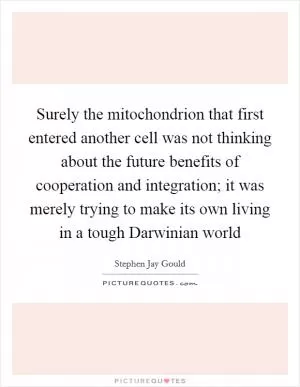Human life is the result of a glorious evolutionary accident

Human life is the result of a glorious evolutionary accident
Stephen Jay Gould, a renowned paleontologist and evolutionary biologist, was a firm believer in the theory of evolution and the idea that human life is the result of a glorious evolutionary accident. Gould's work focused on the concept of punctuated equilibrium, which suggests that evolution occurs in rapid bursts of change followed by long periods of stability. This theory challenges the traditional view of gradualism in evolution and emphasizes the role of chance and randomness in shaping the course of life on Earth.Gould argued that the evolution of human life was not a predetermined or purposeful process, but rather a series of random events and environmental factors that led to the emergence of complex organisms, including humans. He believed that the diversity of life on Earth was the result of a combination of genetic variation, natural selection, and random mutations that occurred over millions of years.
Gould's perspective on human evolution challenges the notion of a linear progression from simple to complex organisms, instead emphasizing the role of contingency and chance in shaping the course of evolution. He believed that the evolution of human life was not inevitable, but rather the result of a series of fortunate accidents and chance events that allowed for the emergence of intelligent and complex beings.
Gould's ideas have had a profound impact on our understanding of evolution and the nature of human life. By emphasizing the role of contingency and randomness in shaping the course of evolution, Gould challenged traditional views of progress and purpose in the natural world. He argued that human life is not the result of a predetermined plan or design, but rather a product of the unpredictable and chaotic processes of evolution.












 Friendship Quotes
Friendship Quotes Love Quotes
Love Quotes Life Quotes
Life Quotes Funny Quotes
Funny Quotes Motivational Quotes
Motivational Quotes Inspirational Quotes
Inspirational Quotes